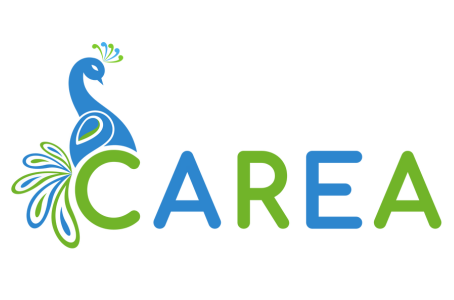
1990’s
Centralia is BornSue and Paul founded Inspira Academy in the 1990s under the AoR, who at the time played a major role in UK reflexology training alongside BRA and IIR. At the time, qualification levels and diplomas did not exist.
A pivotal moment came with the setting up of the Reflexology Forum, where leading educators collaborated on a Core Curriculum, edited by Clive O’Hara. Though underutilised, its high standards influenced the development of Centralia’s Level 5 training programmes. Recognising gaps in existing core curriculums, CAREA later created its own to better reflect the needs of students and graduates and reflexology as a profession.
Following a 2000 House of Lords report recommending independent examinations, AoR partnered with AQA for theoretical exams. Over time, Awarding Bodies assumed greater authority, leading AoR to eventually step away completely from any involvement in qualification development, education and training, focusing instead on its role as a membership organisation.
In 2010, a rush to revise the Level 3 Diploma introduced units, levels, and credits. However, Inspira Academy sought a higher-level qualification beyond school-based education. England’s reflexology organisations had limited time to align with Bologna Agreement standards, whereas Wales had already adopted the framework in 2002. Approaching Agored Cymru, Sue Alma Evans collaborated to develop Level 5 units, later approved under the Health Skills Sector for Nursing and Subjects and Vocations allied to medicine, this was a milestone applicable to level 5 qualifications and positioning reflexology alongside nursing and other health professions.
Initially designed for Inspira Academy, the qualification attracted interest from other trainers. Agored Cymru permitted expansion under Sue and Paul’s leadership, leading to the formation of Centralia. As the Recognised Centre, Centralia oversaw the syllabus, curriculum, assignments, and internal quality assurance, while the Awarding Organisation ensured educational governance and the external quality assurance. This collaborative model balanced regulatory oversight, professional expertise, and training centre input.
Unlike many unregulated institutions, CAREA Centres uphold rigorous standards, welcoming scrutiny to protect learners, the profession, and the integrity of reflexology training.

2016
Level 5 is developed and moves to Ofqual as well as Qualifications WalesThe development of Level 5 brought challenges that shaped Centralia and its Partner Centres, leading to the creation of NEPIP and the Agored Cymru Level 5 Diploma in Practitioner Reflexology.
Transitioning to Ofqual required a full unit rewrite, but Sue, experienced in developing reflexology modules for HND and degree programmes, was well-prepared. Sue led updates to keep pace with legislation, education, and industry advancements.
As Partner Centres expanded, Centralia parted ways with Agored Cymru after 12 supportive years, as they couldn’t accommodate centres outside the UK—particularly with Belfast looking to expand into Dublin. Centralia remained the Recognised Centre until late summer 2024 to ensure all learners completed their qualifications.
Partner Centres then had a choice: revise their syllabus and content or embrace a new vision for reflexology training with OTHM.

2022
Recognised Centre for 2 Awarding OrganisationsCentralia was born in 2010 and had a
rebirth as CAREA in 2022
Always at the forefront and always leading the way …
2022
The CAREA Matrix is BornDuopody, NEPIP, and CALM had long been established in some Academies but not all. However, with a renewed focus on a whole-person approach to health, all Academies eagerly embraced the opportunity to excel in evidence-based treatment protocols. This holistic framework integrates:
Mental → Physical → Emotional
Mind → Body → Spirit
enhancing both learning and teaching programs.

2024
CAREA Advanced/Applied Reflexology Education AuthorityWith a forward-thinking approach and a willingness to embrace new ideas, it became clear that relying on external associations or therapy listings was no longer ideal for our practitioners. In response, new avenues are now being developed to better support their needs.

2025
International Diploma in CAREATeacher Training (level 5)
The IDCTT5 is launched
An amazing programme that is endorsed and certificated by OTHM, the Awarding Organisation that govern the Level 5 Diploma in Applied Reflexology for Integrated Medicine.
CAREA recognise that a generic PGCE (or equivalent) is a great teacher training qualification, but it does not prepare a teacher to teach Level 5 reflexology!
This ‘fit for purpose’ qualification has 4 units that cover all the skills and knowledge to teach, it covers all the course content too and most importantly it addresses the requirements specific to the teaching of adult learners.
Manuals and learning packs are available for each unit, which attract 10 credits each. *Please note these 40 credits are also eligible for global transfer of credits via ECTS.
The programme takes a blended learning approach, and every Trainee Teacher will be assigned a mentor to support them through every stage. Every Trainee Teacher will be observed in the classroom teaching, observing learners during a practical exam, and quality assuring and standardisation practices.
Sue originally wrote the Train the Trainer units for reflexology tutors, but this programme moves on significantly and as with reflexology training itself, takes into account the way in which the profession of reflexology is changing in the world. It provides in one unique and incredible training programme, everything you need to be totally competent from day one with your students, confidently delivering a subject you are passionate to share with others!

2025
Duopody Reflexology Directory launchedRecognition as L5+6 Licensed Practitioner
Excellence Rewarded
Partner with other Health Practitioners
Whole Person Approach
More information on who can apply for entry in the Directory / Register will be issued shortly as the official launch approaches … !
